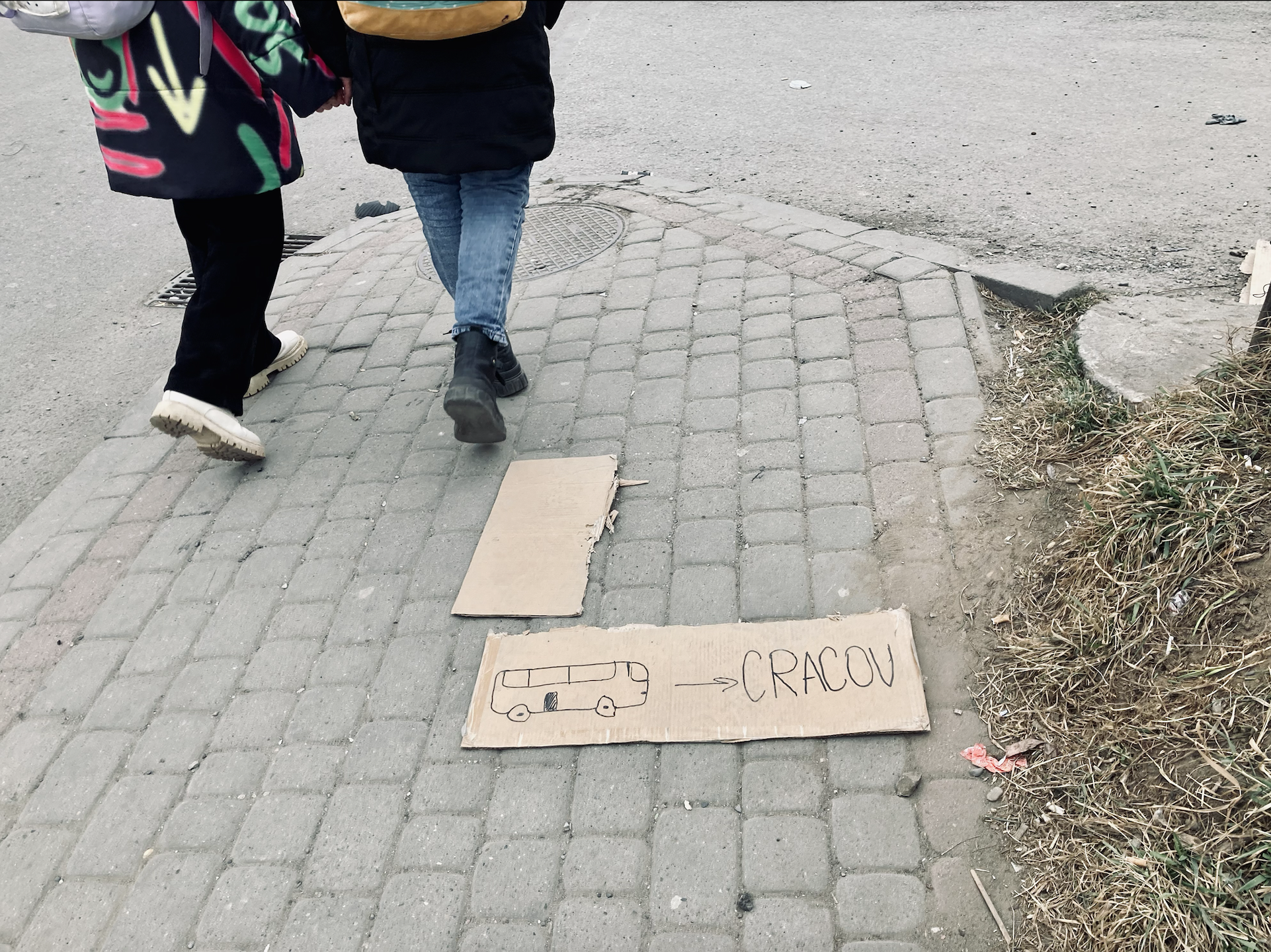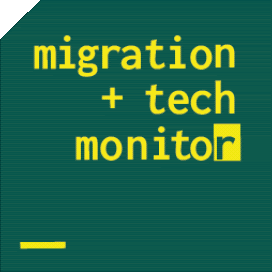
Our THIRD annual fellowship program to support work from-the-ground-up on border and migration technologies is open! Want to join our community?
Are you next?
2025 Applications are now CLOSED. We received 510 applications and are reading through all the great projects that people from all over the world proposed to us. Due to the amount of applicants, we will announce the new cohort of Fellows on March 1st, 2025.
Motivation Behind Fellowship
People on the move are often left out of conversations around technological development. Like other historically marginalized communities, their lives serve as testing grounds for experimental new technologies. The growth of these high-risk technological experiments at the border range from biometric mass surveillance in refugee camps, to the use of automated decision-making in immigration and refugee applications, to AI lie detectors deployed at airports. These technologies do not account for the far-reaching impacts on human rights and human lives. Blanket technological solutions do not address the root causes of displacement, forced migration, and economic inequality, all factors exacerbating the vulnerabilities communities on the move face.
Ironically, technologies could also be used for the protection of people on the move. AI that calculates the routes of people on their way across borders could be implemented to guarantee safe-passage, surveillance technology could monitor the behavior of border patrol agents and make sure that international law is being upheld, and language processing could facilitate the access to asylum services in the host country.
Through the third year of our Migration and Technology fellowship program, we aim to continue creating opportunities for people with lived experience of migration to meaningfully contribute to research, storytelling, policy, implementation of technology and advocacy conversations from the start, and not as an afterthought. Among our aims is a collaborative, intellectual, and advocacy community committed to border and migration justice. We prioritize opportunities for participatory work, including the ability to pitch unique and relevant projects by affected communities themselves.
Our fellows so far have worked on projects ranging from the utilization of WhatsApp and social media for resource sharing, to a chatbot designed to facilitate access to legal services, research and reporting on the surveillance of mobile and occupied communities, educational programs on digital rights and ICT skills, technical support for people on the move at borders, a social media platform dedicated to the memories of people on the move, and social media information services for migrant workers, among others.
Ultimately, for conversations around the impacts of technology in migration to shift towards the lived experiences of people, communities and individuals living through these technological experiments must be in the driver’s seat. This includes having access to robust resources, including the time and space to develop ideas, build skills, and develop connections. One way to support work outside of the established hierarchies of power which are often centered on established institutions is to fund work and redistribute resources to communities and individuals who may not be able to benefit from funding and resources readily available in the EU and North America.
Our fellowship program tries to open up some of these spaces of collaboration, care, and co-creation of knowledge.
Is this you?
Eligibility:
Lived Experience
Are you currently in an active situation of forced migration, displacement (externally and internally), or occupation?
Have you arrived in your host community and find it hard to get access to resources for the implementation of an idea?
Has your lived experience of migration or displacement inspired you in the development of a project that will have a positive impact on mobile or migrated communities? Please read on!
Interplay of Technology and Migration
Technology already has and will have an ever-increasing impact on the life of all people. We are interested in a wide range of ideas that center the intersection of technology and migration, such as:
Research: Do you need financial support for a research project that deals with the impact of technology on mobile, migrated, or occupied communities? We want to know more.
Journalism: Are you a displaced, migrated or currently migrating journalist? Or are you a member of a community under forced occupation? Do you want to report on how technology is used in the field of migration? Please explain how.
Culture: As a person with lived experience of migration, displacement or occupation, do you want to make the use of technology in these communities visible through a cultural project? Very interesting. What do you have in mind
Education: Do you want to use your story of migration, displacement, or occupation to teach future generations how to use and to protect themselves against technology? Do you want to use the intersection of migration and technology in order to create awareness in an educational setting? Tell us what you want to do.
Tech-in-use: Do you have first-hand experience with how technology has made the life of people on the move or under occupation more difficult? Are you inspired to develop systems and projects that want to use technology in support of mobile communities? We are all ears.
Tech and the Environment: Are you a person with lived experience of migration and/or occupation and have you witnessed how the development of technology for the global North is causing environmental issues with serious repercussions for your community? Do you witness the exploitation of workers in mines producing materials that are needed for the production of technology? Share with us.
The MTM fellowship program’s main goal is to support members of mobile communities or people in occupied spaces outside of Europe and North-America. We explicitly invite women and members of the LGBTQIA+ community to submit project ideas. Applicants that can identify with the aforementioned will be treated with priority.
Timeline:
Application due December 31st, 2024
Potential fellows will then be contacted for follow-up conversations with our current fellows in early 2025
Fellows will start April 2025 until May 2026
Stipend:
$30,000 USD for 12 months
Requirements:
We are aware of the difficulties that many mobile communities face. Therefore, we keep the requirements connected to the fellowship as low as possible. We do, however, ask for three things.
1st: The active participation in our monthly 90 to 120 minute webinars, in which we offer training regarding project development and implementation, finances, public outreach, media, ethical research and storytelling, as well as other topics. Our guest speakers are highly trained professionals who are interested in learning from you and connect with you as well.
2nd: The MTM wants to support mobile communities, but also build bridges between you and existing professional communities. Therefore, we would like you to attend at least one public event (e.g. a conference or a workshop) to present your project and build your network. We are happy to help you find the right event but cannot offer additional financial support.
3rd: Become an active alumni of the MTM and support our future fellows. This might include your participation in choosing the next fellows, offering your expertise, becoming a guest speaker for one of the webinars, or represent MTM in the media or at an event.
4th: We work with a participatory approach. This means also that the current fellows will be an equal part of the selection process of the new cohort and that you, as a fellow, will be part of selecting the following cohort.
Application Materials:
Rough ideas are more than welcome and we look forward to workshopping them with you. Please copy/paste the following structure into a word document (preferably in English, but feel free to write in your native language).
***Don’t have a computer? Not a problem, you can also send us a video!***
Project plan (up to 1200 words in total)
Project field (choose one) Research I Journalism I Culture I Education I Tech-in-use I Tech and Environment / Other (fill in):
What is your project about? Please give us a brief description of what you have in mind?
What is the intended effect of your project? Let us know.
Where, how, and possibly with whom do you want to implement your project? Just a couple of words, nothing has to be set in stone yet.
What would you use the money for? Give us a vague idea of how to spend your grant. Traveling? Equipment? Personnel? Additional Education? Living expenses can also be factored into this calculation. A rough estimate is enough, we do not need an explicit budget.
How will mobile or migrated communities benefit from your project? Let us know about your vision.
Personal statement (500 words in your language or video) Please explain to us how your lived experiences inspired you to come up with your idea, what enables you to turn your project vision into reality, how and why you identify as a member of a mobile, migrated, or occupied community, and why you think the MTM should pick you.
Please submit all materials (+ questions) to fellowship@migrationtechmonitor.com
Your application will be reviewed by our current fellows and the MTM team. We look forward to hearing from you before December 31st 2024!

